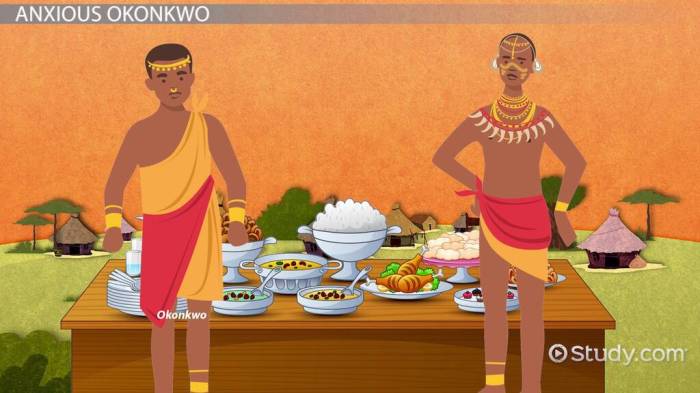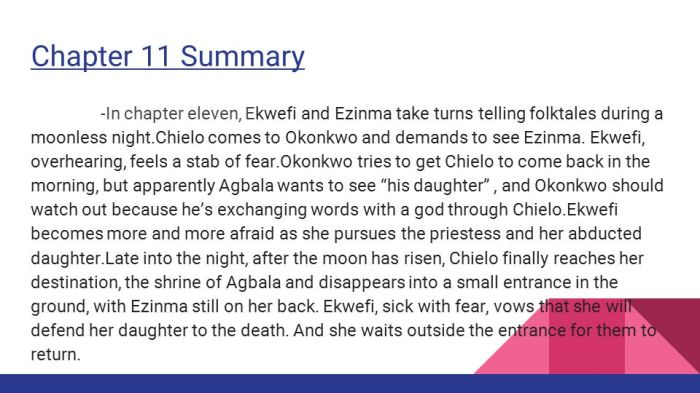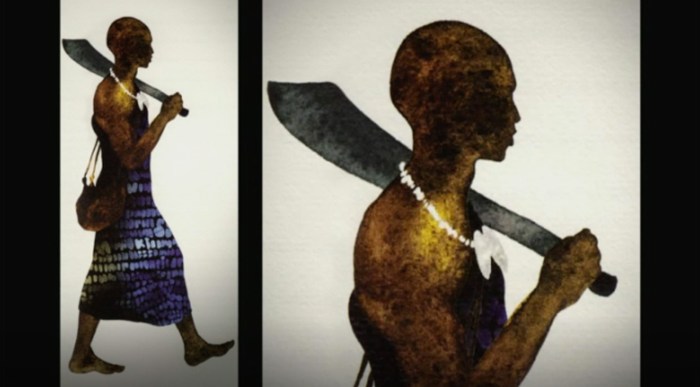Delving into Things Fall Apart Chapter 12 Summary, this exploration immerses readers in a unique and compelling narrative that delves into the intricate tapestry of Igbo society and the challenges it faces in the face of cultural change. The chapter provides a microcosm of the broader themes that permeate Chinua Achebe’s seminal work, examining the clash between tradition and modernity, the role of rituals and customs, and the complexities of human relationships.
Through the lens of Okonkwo’s inner conflict and the introduction of Christianity, Chapter 12 offers a nuanced exploration of the tensions that arise when different worldviews collide. The chapter also highlights the importance of tradition in shaping individual and communal identities, while simultaneously acknowledging the need for adaptation and change in the face of new ideas and influences.
FAQ: Things Fall Apart Chapter 12 Summary
What is the significance of the kola nut in Igbo culture?
The kola nut holds immense symbolic value in Igbo culture, representing hospitality, respect, and the establishment of relationships. Its sharing is a ritual that signifies trust, reconciliation, and the forging of bonds between individuals and communities.
How does Okonkwo’s inner conflict manifest in his actions?
Okonkwo’s inner conflict between societal expectations and his individuality manifests in various ways, including his adherence to traditional gender roles, his suppression of his emotions, and his violent outbursts. He struggles to reconcile his desire to conform with the expectations of his community with his own sense of self and his longing for a more fulfilling life.
What is the role of rituals in Igbo society?
Rituals play a crucial role in Igbo society, serving to maintain social order, preserve cultural identity, and connect individuals to their ancestors and the divine. They provide a framework for important life events, such as birth, marriage, and death, and reinforce the values and beliefs of the community.


